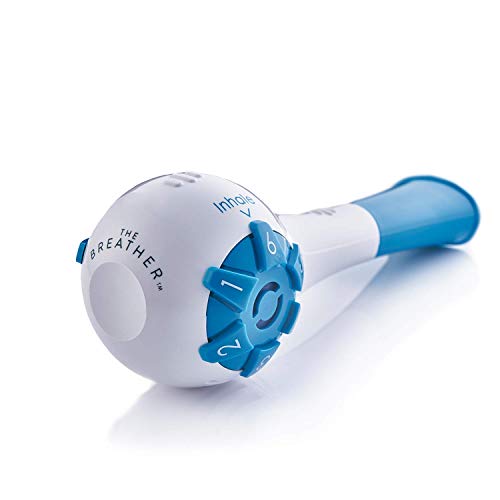I know you guys must be sick of me by now. 
I didn't drive to the hospital today because I had so many things I had to take care of at home. Hubby usually does these things, so it is my job while he gets well. I felt so guilty already, then I he texted he is back in a-fib. So, I went and pulled up the doctors notes. His most recent ekg states:
"Atrial fibrillation with rapid ventricular response-ST & T wave abnormality, consider inferior ischemia-Abnormal ECG-In automated comparison with ECG of 19-OCT-2024 18:44,-Atrial fibrillation has replaced Junctional rhythm-Vent. rate has increased BY 48
BPM-T wave inversion now evident in Inferior leads-T wave inversion now evident in Lateral leads"
Not being at the hospital I couldn't ask questions. Now I'm freaking out they damaged his heart and he may have ischemia as that is mentioned in the doctor's notes. So, once again they are want to do a Cardio Version. Hubby doesn't want to do what they say because he wants out of the hospital and he worries they will stop the Coumadin again so he is refusing drugs that can't be taken with it. He refused a medication due to that and the doctor came up with something he would agree to, but I feel like I'm on a roller coaster ride that I will never be able to get off of. This is day 11 in the hospital. I know it is the safest place for him, but now I feel like a real jerk for not being there.
He also has small-moderate circumferential pericardial effusion, mediastinal effusion, a periaortic hematoma and bi-lateral pleural effusion. The fluid just won't go away. He is walking and using the spirometer. He is on Lasik... Ugh. I just wanted this to be easy for him. And it seems like he is going to get every complication there is.
And then there is also the issue of flow turbulence in the left main coronary artery, which I googled. ARGHHHH Yet another thing. If he has to go back into surgery he will be beyond pissed off.
ARGHHHH Yet another thing. If he has to go back into surgery he will be beyond pissed off.
I didn't drive to the hospital today because I had so many things I had to take care of at home. Hubby usually does these things, so it is my job while he gets well. I felt so guilty already, then I he texted he is back in a-fib. So, I went and pulled up the doctors notes. His most recent ekg states:
"Atrial fibrillation with rapid ventricular response-ST & T wave abnormality, consider inferior ischemia-Abnormal ECG-In automated comparison with ECG of 19-OCT-2024 18:44,-Atrial fibrillation has replaced Junctional rhythm-Vent. rate has increased BY 48
BPM-T wave inversion now evident in Inferior leads-T wave inversion now evident in Lateral leads"
Not being at the hospital I couldn't ask questions. Now I'm freaking out they damaged his heart and he may have ischemia as that is mentioned in the doctor's notes. So, once again they are want to do a Cardio Version. Hubby doesn't want to do what they say because he wants out of the hospital and he worries they will stop the Coumadin again so he is refusing drugs that can't be taken with it. He refused a medication due to that and the doctor came up with something he would agree to, but I feel like I'm on a roller coaster ride that I will never be able to get off of. This is day 11 in the hospital. I know it is the safest place for him, but now I feel like a real jerk for not being there.
He also has small-moderate circumferential pericardial effusion, mediastinal effusion, a periaortic hematoma and bi-lateral pleural effusion. The fluid just won't go away. He is walking and using the spirometer. He is on Lasik... Ugh. I just wanted this to be easy for him. And it seems like he is going to get every complication there is.
And then there is also the issue of flow turbulence in the left main coronary artery, which I googled.
- Cause:
The most common reason for turbulent flow in the left main coronary artery after AVR is the altered blood flow pattern around the prosthetic valve, which can create turbulence at the coronary ostium (the opening of the coronary artery) due to its positioning relative to the valve.
- Complications:
Significant turbulence can lead to reduced blood flow to the heart muscle, potentially causing ischemia (lack of oxygen) and myocardial infarction (heart attack) in severe cases.
- Diagnosis:
This condition is usually diagnosed using transthoracic or transesophageal echocardiography (TEE), which can visualize the blood flow patterns in the coronary arteries.
- Management options:
- Monitoring: Close monitoring of the patient's cardiac function after AVR is crucial to detect any signs of coronary compromise.
- Coronary angiography: Further evaluation with coronary angiography may be needed to assess the severity of the flow turbulence and identify any potential coronary artery stenosis.
- Coronary artery bypass grafting (CABG): If the turbulence is severe and causing significant ischemia, a CABG procedure might be necessary to bypass the affected coronary artery.
- Monitoring: Close monitoring of the patient's cardiac function after AVR is crucial to detect any signs of coronary compromise.
Last edited:













